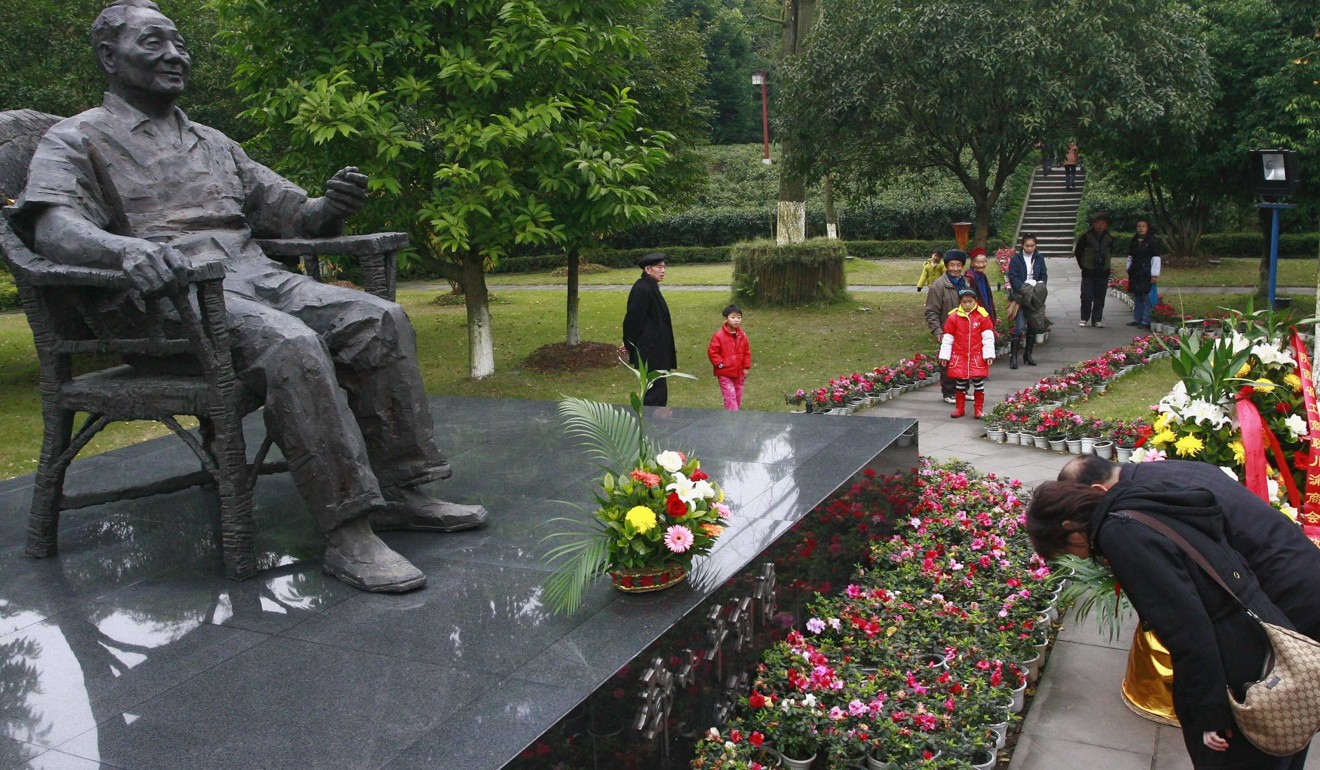
Quality over speedy growth: what Xi’s new ‘principal contradiction’ means for Hong Kong
Tammy Tam says China has bid farewell to the period of merely staving off hunger and cold as a new and critical social conflict arises
Honestly speaking, a long speech like this, full of jargon with “Chinese characteristics”, can be hard to digest. So what is this new “principal contradiction” all about and does it ring any bell for Hong Kong?
Opinion: Xi who must be obeyed – China’s chairman of everything
The speech had two key words: “new era”. Xi set a two-stage goal to turn China into a “great modern socialist country” by the middle of the century, pointing out: “The principal contradiction facing Chinese society has evolved. What we now face is the contradiction between unbalanced and inadequate development and the people’s ever-growing needs for a better life.”
Putting it in layman’s terms, the most critical social conflict now is the country’s widening wealth gap amid growing public awareness of quality of life. Under such circumstances, quality matters more than speed of development.

This is a significant shift from the previous definition set by Deng Xiaoping in the early 1980s, which was a contradiction “between the ever-growing material and cultural needs of the people and backward social productivity”.
Understandably, that was a time when China was badly in need of economic growth so as to improve people’s basic livelihood, since the country was poverty stricken after decades of political turmoil, including the Cultural Revolution.
What would Mao have made of Xi Jinping’s China?
Deng’s new “contradiction” was a clear departure from the “class struggle” focus set by Mao Zedong, a change that effectively started a new chapter of development for China.
Under Deng’s open-door policy, China embraced with great enthusiasm all kinds of foreign and Hong Kong investment. For many Hong Kong businesspeople, it was a golden age that opened up a huge market together with very welcoming preferential treatment and not much, or no, local competition.
Of course, the other side of the narrative was that Hong Kong itself made great contributions to the country’s economic reform over the decades.

But gradually, the threshold for investors in the mainland market became higher as China developed into the world’s second largest economy.
Deng’s wish “to let some people get rich first” has resulted in a billionaire boom as well as a sizeable middle class on the mainland.
Today, low-tech, labour-intensive and environmentally unfriendly overseas investments are no longer welcome, and Hong Kong is no exception.
Will Xi’s report at party congress hold new message for Hong Kong?
If Deng has ended China’s class struggle-oriented time, then Xi’s latest redefining of the “principal contradiction” shows China has bid farewell to the period of merely staving off hunger and cold. Instead, it now aims to uplift people’s living standards to those of the world’s most advanced countries, or to seek “common prosperity for everyone”, as Xi promised.
As the Chinese saying goes, uneven distribution is more worrying than scarcity. Xi’s adjustment of China’s major “contradiction” comes with the shifting of key economic and social policies, such as promoting hi-tech and new economy development, enhancing targeted poverty relief efforts and many more.
These changes can be opportunities or challenges for Hong Kong, a city also in need of redefining its own major social conflict to tackle, as well as its role amid the rapid changes and developments across the border.

